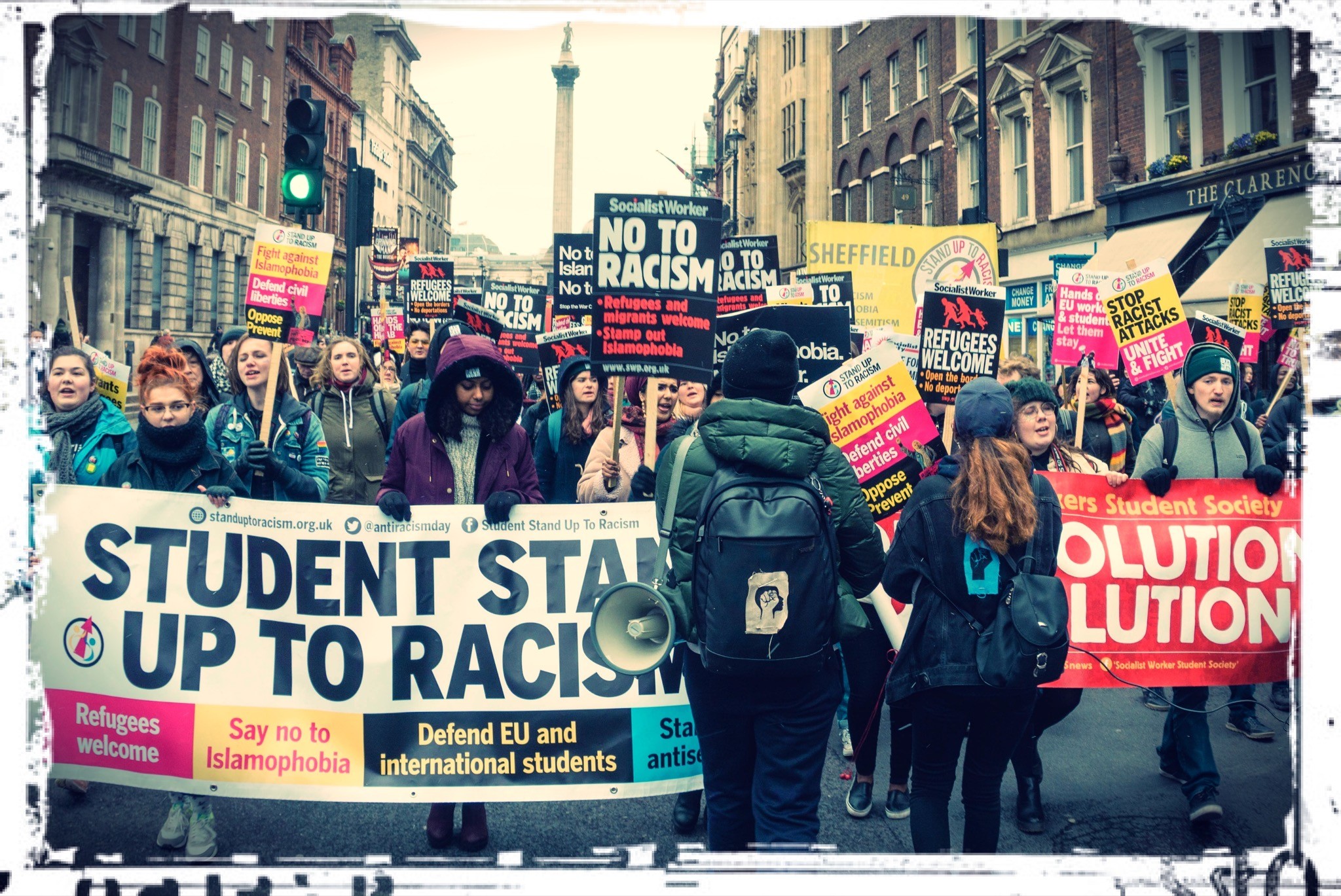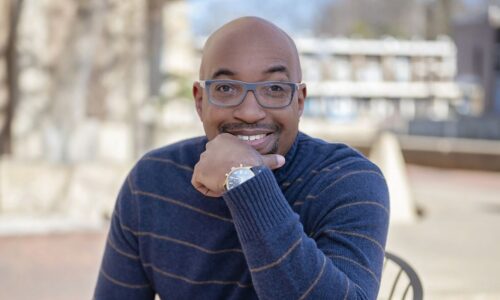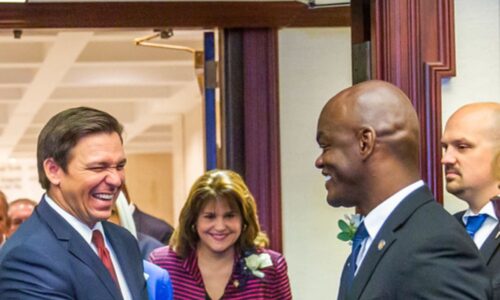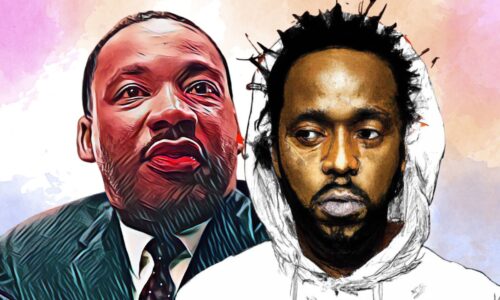From the editors: Of all the places to put forth a controversial idea, perhaps none is more attractive than an American college campus.
Similarly, perhaps no issue has vexed campus leaders more in recent times than the issue of whether and how to facilitate or regulate free speech on campus and still maintain safety and an inclusive environment.
The challenges associated with this balancing act came to a head in August of 2017, when a white supremacist rally marched through the grounds of the University of Virginia in Charlottesville.
The next day, 32-year-old Heather Heyer was killed when a man drove a car into a group of demonstrators who were protesting the rally on a downtown mall.
We asked a panel of presidents – from Elon University, Bowdoin College and the University of Washington – these questions: As the nation approaches the one-year anniversary of the Charlottesville tragedy, what is the most important thing you think needs to happen in order to make college campuses places where controversial ideas can be heard? Do you believe free speech should be treated differently on campus than it is in the rest of society? And if so, how?
Not Censorship But More Speech
Ana Mari Cauce, president of the University of Washington
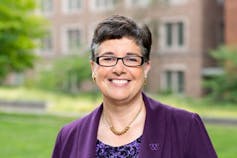
University of Washington
Universities are essential and suitable forums for discussion and debate of controversial topics. Debate helps students develop the skills that strengthen democracy, skills like critical thinking, reasoned argument and the ability to advance those arguments. We should always err in favor of more – not less – speech on campus.
That principle, however, is put to the test when campuses – especially public institutions – are targeted by speakers who seek to generate more heat than light, who have no intention of participating in a substantive debate. In some cases, they can’t or don’t articulate coherent arguments beyond profanity-laced provocations. Skillful at pushing the limits of free speech right up to the line of incitement, their aim is to attract publicity to their own personas or agendas.
Public universities are legally obligated to allow protected forms of speech, no matter how offensive or insipid. However, as leaders, we also have the right and the duty to publicly denounce repugnant speech and actions, like support for white supremacy.
It can be difficult to accept that even hateful and repugnant speech is protected by the Constitution and that allowing it to occur at public universities, sometimes elevating a speaker’s status, is the price we pay for ensuring everyone’s freedom of speech.
The remedy is not censorship, but more speech.
As institutions of learning, we are our own best solution for presenting and discussing ideas in substantive and respectful ways. Despite breathless headlines, campuses remain places where controversial topics are routinely debated.
Nonetheless, education leaders and lawmakers need a push to increase civic education, similar to the push to increase STEM education. A college degree should ensure that anyone, regardless of major, has grappled with some of the difficult questions facing modern democracies and has some historical understanding of free expression in the United States. Giving students the tools to understand their rights will help protect those rights.
University leaders also require better ways of deciding who should bear the true costs when public university campuses become places where society at large, not just our university community, engages in debate.
In the past, student associations could rarely afford the fees and travel expenses of speakers with national reputations or notoriety. But, between crowd-sourcing and financial backing from outside political groups, not to mention media-savvy speakers who know the value of publicity, even small student groups now host speakers who attract widespread attention and often protests, leading to substantial security costs.
I would argue that these are costs that a democratic society should be willing to pay. The question for individual campuses is: how best to divvy up those costs so that free speech can continue to flourish while not imposing too much of a financial or other burden on the university and its students?
Charlottesville 2017: Nothing To Do With Free Speech
Clayton Rose, president of Bowdoin College
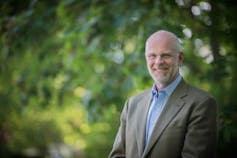
Bowdoin College
Charlottesville 2017 had nothing to do with a free speech “balancing act.” What was on display there was the voice and the face of white nationalist Nazis and their fellow travelers. The ideologies of these people are despicable and have been used to rationalize some of the most heinous regimes the world has seen. White supremacists have the right to express their views, and in doing so the demonstrators starkly revealed their racism and anti-Semitism, which have no place in civilized society. We must continue to be vigilant about calling these people out. As Justice Brandeis observed, “sunlight is said to be the best of disinfectants.”
The events of last summer have nothing to do with the opportunities and challenges of free speech on campus. There are critical issues that divide us as a society and that must be openly discussed on campuses across the country — issues like economic, political and social opportunity, immigration, the environment and privacy. Our students need to develop the skills and sensibility for thoughtful and respectful discourse on these divisive topics — something that has all but disappeared in our cable news society.
The twisted ideologies on view in Charlottesville last year play no part in the essential effort to ensure that this country’s great colleges and universities remain places to learn these skills — where students can test deeply held beliefs, examine ideas that might profoundly unsettle and may even offend, and where they can challenge each other and campus guests in ways that sharpen or change their thinking by engaging facts, data, analysis and reason.
The most important thing we can do as educators is to remain respectfully and persistently skeptical and to underscore that higher education and intellectual experience are more about the questions than the answers.
It is only through this engagement that our students, and ultimately the rest of us in American society, can best understand the issues and challenges embedded in the hardest, fiercest problems we face today. This is how we develop in our students the knowledge, intellectual skills, and emotional fortitude to confront the most challenging questions of our time to make our society and our world better.
How To Get Beyond Shouting At Each Other
Connie Ledoux Book, president of Elon University
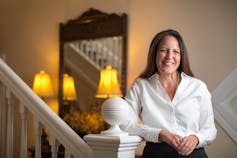
Elon University
Freedom of expression is fundamental to learning on our campuses and at the heart of a university’s existence. Protecting a student’s right to speak and another student’s right to disagree is an imperative. Every day, thousands of diverse ideas erupt in our classrooms and residence halls.
Surprisingly, however, formal instruction on how to exchange, consider and debate different perspectives is missing at many universities, according to a National Task Force on Civic Learning and Democratic Engagement.
Learning to ride a bicycle is not intuitive. Nor is knowing how to conduct a civil dialogue. While a broadly educated student can become familiar with the ideas and theories driving differences in points of view, the practice of exchanging those ideas with each other is a set of skills that can and should be taught.
Civic skills matter for democracy. As a recent study by Tufts University’s Institute for Democracy and Higher Education showed, five college campuses where students turn out to vote at rates greater than historically predicted also had intentionally integrated civic engagement practices within the curriculum and running parallel to it. In other words, these campuses have infused civic engagement into the college experience as a way to prepare students for effective citizenship.
Four key teaching practices were identified on these campuses as promoting successful civic participation:
- Faculty sought training to help them manage “hot” discussions with their students in the classroom.
- Faculty built trust among students by building together well-defined standards for behaviors during class discussions, including encouraging dissent and managing conflict, and then enforcing those standards.
- Diversity of backgrounds and ideologies among students was used as an asset in teaching
- Professors often played “devil’s advocate” by introducing dissenting and diverse views when key perspectives were absent in discussions.
If we are doing it right in higher education, students in their own self-discovery will become passionate, zealous and fierce about sharing ideas in hopes of making a difference in the world. Let’s make sure we have also taught them how to disagree: if Americans are only capable of shouting at each other, those of us in higher education will shoulder a part of the blame.
Ana Mari Cauce, President, University of Washington; Clayton Rose, President , Bowdoin College, and Connie Ledoux Book, President , Elon University
This article was originally published on The Conversation. Read the original article.
